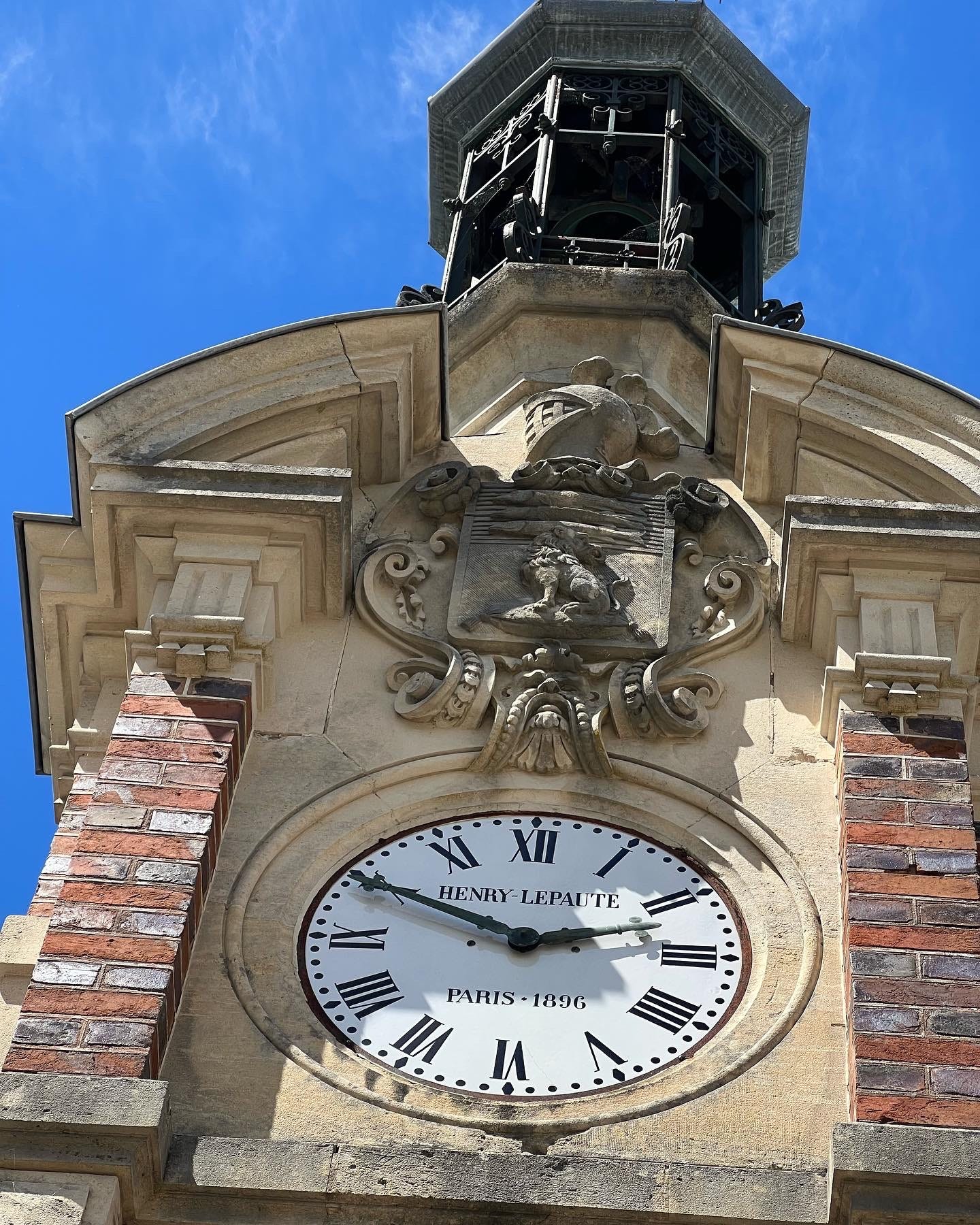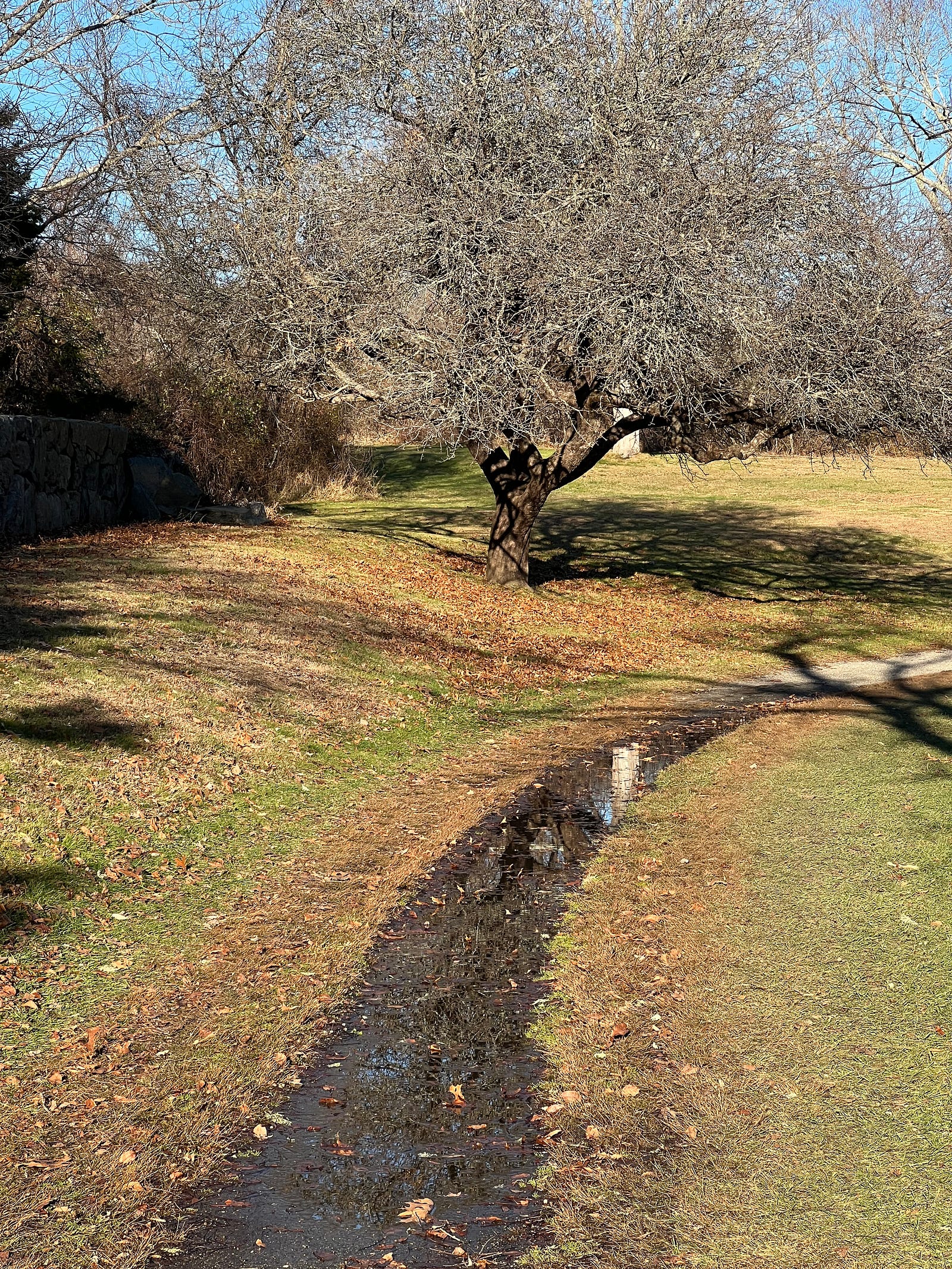Sermon: Being With
Published by Ronald Steed,
ADVENT | BEING WITH | NAZARETH
Sermon: Being With- The Way of the Lord
St. Andrews Episcopal Church, Madison, CT ¹. Taken from John 1:6–8, 19–28 ²

Advent… a time of waiting for things to hatch | Photo by Ron Steed
I’m not any of those!
In today’s gospel, John the Baptist describes himself, frustratingly to the priests and levites sent from Jerusalem, as "none of the ones you are expecting. I am not the Messiah, I am not Elijah, and I am not the prophet." I think I should clarify why they ask John about three people like that.
The Messiah, we’ve talked about a lot, and while there was not consistent job description for Messiah in the Bible, the general expectation in Jesus’ day was that the Messiah would be an anointed one who would crush the Romans and install the People of Israel as the rulers of the world, with God himself as King. Elijah’s coming, was prophesied in the book of Malachi chapter 4; "I will send you the prophet Elijah before the great and terrible day of the Lord comes." And the Prophet they ask about, is predicted in the book of Deuteronomy chapter 18: "The Lord your God will raise up for you a prophet like [Moses] from among your own people; you shall heed such a prophet."
John says he’s none of these three, which confuses us as well, since Jesus himself seems to suggest later that John WAS fulfilling the role of Elijah. And, what John DOES say about himself was as enigmatic to his questioners as it is to us: "I am the voice of one crying out in the wilderness, ‘Make straight the way of the Lord,’" This is a quote from Isaiah Chapter 40 which announced the good news that the Jews were free to return to Jerusalem from exile in Babylon in about the year 538 BC. It’s all very confusing, but that is the joy of being Episcopalian; there is nothing so confusing that a cup of tea can’t make better.

Time gets turned on its head in Advent | Photo by Ron Steed
Among of the many confusing things we have to contend with in Advent, is that time gets turned on its head. Advent is a season when we look at the past return of the Jews from exile in Egypt and again in Babylon, we look to the past just before the birth of Jesus, we look to the past at John the Baptist just before Jesus launches his public ministry, and we imagine all of this as it might apply to the second coming of Christ in the future. We look at the these past events as though they are the future so that we can imagine what the future coming of Christ might be like. Of the characters in today’s gospel, the ones I relate to most are the Priests and the Levites who must have been shaking their heads all the way back to Jerusalem, "What the heck did we just hear from that crazy man in the wilderness?"
30 Years in Nazareth
Jesus himself had his own season of Advent, a time of waiting, and staying awake, and imagining, and that lasted for the 30 years or so he spent living in Nazareth.³ Almost nothing is mentioned in the Gospels about this time, except that Joseph took his family for a while to Egypt to escape King Herod, and a childhood story of Jesus in the temple. His Nazareth life is probably the most important time in Jesus’ life, not because of anything Jesus DID spectacularly there, but because of the little thing he did for 30 years; he was WITH us.
I’m going to push this idea of "being with" strongly to you; the whole Gospel, the Good News of Jesus Christ is illustrated BEST by the 30 years Jesus spent in Nazareth that is NOT documented in the four Gospels. It was a time of being with. A time of living with family and neighbors… of sharing meals and stories… of giving hospitality to strangers and travelers… a time of collectively bearing the burden of Roman occupation. That’s what the whole gospel is about, God being with us as we live our lives, and us being with one another. When John says "Make straight the way of the Lord", the way of the Lord he is talking about is "being with".

Make straight the way of the Lord | Photo by Ron Steed
It’s true, when Jesus started his public ministry at his Baptism in the Jordan River, Jesus entered a three year season of other kinds of engagement; of being FOR us, of working WITH his disciples, and finally doing FOR us the two things that Jesus had to do alone; dying and resurrecting. These are forms of engagement that are different than being with, but they all have ONE aim, to break down the barriers between people, and between humanity and God, that prevent us from being with one another. There is nothing beyond being with that the Gospel points to. Whatever happens at Jesus’ Second Coming, being with is going to the point of it all, that much we can say.
The big picture of the Bible is that humanity lost the sense of being with God at some point… by our own choice, the Genesis stories tell us, people fell out of relationship with the God who walked in his garden at the cool of the day. The whole biblical narrative from Genesis to Revelation is about what God is doing to restore us to that relationship. The decisive part is sending Jesus to live with us for a while, and then sending the Spirit to dwell in every heart. God is with us by becoming us. And the very last image in the Bible, is the New Jerusalem (Heaven) coming to a New Earth, where God will make his home with us.
In the biggest picture of all, the whole purpose of the Trinity’s launch of creation was to be with what God made. That’s why they made the universe… to enjoy it… to marvel at the unfolding newness of each moment, and to love it. 30 years in Nazareth was just one way that God did this… to be with the people of a small backwater village on one tiny planet in the cosmos. And if you think that was unimportant to God in the big scheme of things; think again. Being with is God’s whole purpose; being with is our whole salvation.
Reconciliation IS the Gospel
"Our calling is to imitate the way God is" and "our clue to imitate God is to follow the way God is with us in Christ." We might consider that the time Jesus spent in active ministry, 3 years, pales in comparison to the Advent he spent in Nazareth, 30 years. We might find the same proportion at work in our own lives, with most of it spent just being with others as our highest good. And what time we DO spend in active ways of engagement have the aim being with more and more people who have fewer and fewer barriers to relationship. "There is no goal beyond restored relationships; reconciliation IS the gospel."

A shared conversation over coffee | Photo by Ron Steed
Once, early in my work with the homeless shelter in New London, I decided "today’s the day I’m going to sit down and have a cup of coffee with one of the shelter guests and maybe see if I can give them some advice." A little Narcissism can be healthy sometimes. What happened stunned me. We had a conversation. He told me about a couple of dreams he had lately. We got to know each other and thoroughly enjoyed one another’s company. I went into the encounter thinking that I would bring solutions to this poor man’s problems; I saw him as a problem to be solved. What I found was that he had an abundance of wisdom that he was eager to share; he was just a person to be loved. I went in thinking I would straighten this man’s life out. Instead, the way of the Lord straitened me out. That is the power of being with.
We might think about Jesus’ Nazareth Advent as we consider the work of this parish as a community and out in the world. Is the Gospel, being with, our highest aspiration? How are we working on relationships? How are we at being with one another? Do we know each other’s deep stories? Do we know what our fellow disciples are contending with? What barriers to relationship, like race, poverty, and politics, are we removing so that we can be with? Do we do things in the world that bring us into relationship with people who are not like us, so that we can hear their stories and receive the wisdom that they offer? In whatever we do, are we making it possible for our parishioners to experience the transformative power of being with? Are we walking God’s good road together, and picking up new friends along the way?
In whatever we do, are we making straight, the way of the Lord?
¹ This sermon was delivered at St. Andrews Episcopal Church, Madison, CT, on 3 Advent, December 17, 2023.
² John 1:6–8, 19–28 (NRSV):
There was a man sent from God, whose name was John. He came as a witness to testify to the light, so that all might believe through him. He himself was not the light, but he came to testify to the light. This is the testimony given by John when the Jews sent priests and Levites from Jerusalem to ask him, "Who are you?" He confessed and did not deny it, but confessed, "I am not the Messiah." And they asked him, "What then? Are you Elijah?" He said, "I am not." "Are you the prophet?" He answered, "No." Then they said to him, "Who are you? Let us have an answer for those who sent us. What do you say about yourself?" He said, "I am the voice of one crying out in the wilderness, ‘Make straight the way of the Lord,’" as the prophet Isaiah said. Now they had been sent from the Pharisees. They asked him, "Why then are you baptizing if you are neither the Messiah, nor Elijah, nor the prophet?" John answered them, "I baptize with water. Among you stands one whom you do not know, the one who is coming after me; I am not worthy to untie the thong of his sandal." This took place in Bethany across the Jordan where John was baptizing.
³ Quotes after this point, and some themes taken from Wells, S. (2015). A Nazareth Manifesto: Being with God. Wiley Blackwell.